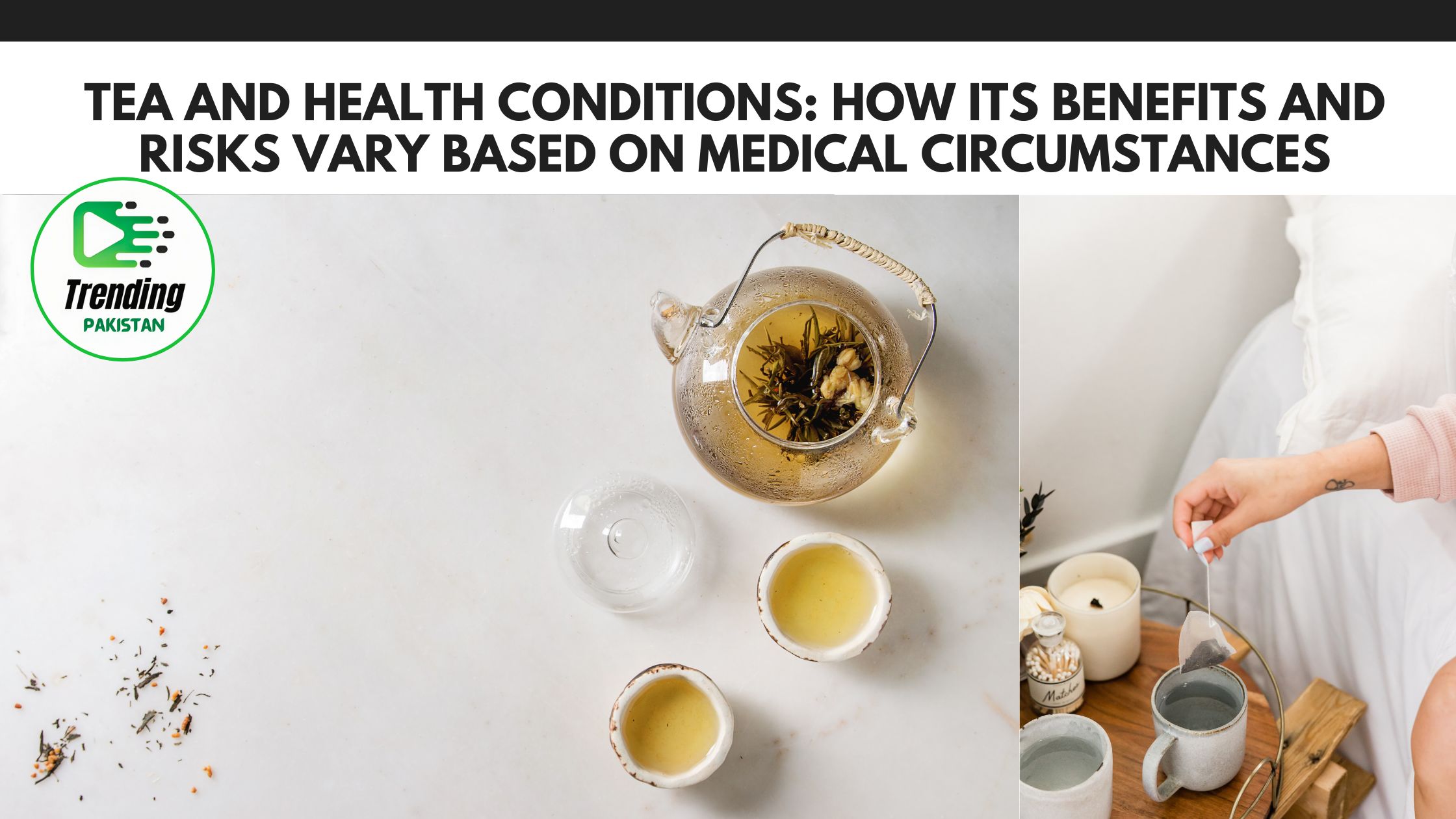
Tea and health conditions: How its benefits and risks vary based on medical circumstances
Tea is one of the most popular beverages in the world, and for good reason. It’s delicious, refreshing, and has a wide range of potential health benefits. However, it’s important to be aware of the risks associated with tea consumption, especially for people with certain medical conditions.
Benefits of tea
Tea is a good source of antioxidants, which can help to protect the body from damage caused by free radicals. Free radicals are unstable molecules that can contribute to the development of chronic diseases such as cancer and heart disease.
Tea has also been shown to boost the immune system, improve cognitive function, and reduce the risk of a number of other health problems, including:
- Cardiovascular disease
- Stroke
- Type 2 diabetes
- Parkinson’s disease
- Alzheimer’s disease
- Obesity
Risks of tea
While tea is generally safe for most people to consume, it’s important to be aware of the following potential risks:
- Caffeine: Tea contains caffeine, which can cause side effects such as anxiety, insomnia, and headaches, especially in people who are sensitive to caffeine.
- Tannins: Tea contains tannins, which can interfere with the absorption of iron. This is a particular concern for people with iron deficiency anemia.
- Oxalates: Tea contains oxalates, which can contribute to the formation of kidney stones in some people.
Tea and specific medical conditions
The following are some specific medical conditions that may be affected by tea consumption:
- Anxiety: People with anxiety should be cautious about consuming tea, especially tea that is high in caffeine. Caffeine can worsen anxiety symptoms such as restlessness, jitteriness, and racing thoughts.
- Insomnia: Tea containing caffeine can interfere with sleep. People with insomnia should avoid drinking tea in the evening hours.
- Iron deficiency anemia: People with iron deficiency anemia should limit their tea intake, as tannins can interfere with the absorption of iron.
- Kidney stones: People with kidney stones or a history of kidney stones should limit their tea intake, as oxalates can contribute to the formation of kidney stones.
Pregnant women and breastfeeding mothers: Pregnant and breastfeeding women should limit their caffeine intake to 200 milligrams per day. This means that pregnant and breastfeeding women should drink no more than two cups of tea per day, as most teas contain 50-70 milligrams of caffeine per cup.
Tea is a delicious and healthy beverage for most people to consume. However, it’s important to be aware of the potential risks associated with tea consumption, especially for people with certain medical conditions. If you have any concerns about whether or not tea is safe for you to drink, talk to your doctor.







